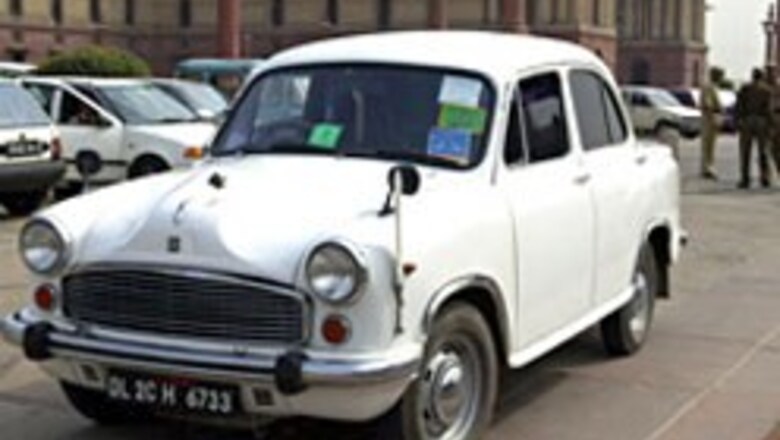
views
New Delhi: The Ambassador car, fondly called the king of the road, might soon ride to its sunset as a nagging labour dispute has threatened to close down the only Hindustan Motors plant that makes the car.
Striking workers have already forced Hindustan Motors to temporarily down the shutters at the factory that makes the icon of the Indian roads.
The Ambassador — a Spartan, boxy sedan that for decades was ubiquitous on Indian roads — has already been disappearing fast from the roads in the face of rapid influx of foreign cars and newer domestic models.
The car was introduced 50 years back in 1957 as an Indian-made version of the British Morris Oxford. The Ambassador met the needs of a small elite, and the government protected its market with steep import tariffs.
With its ubiquitous presence on Indian roads, remaining the official vehicle of Indian prime ministers and government officials and the car of choice of taxi companies, the Ambassador made it a symbol of India.
But when the import tariffs started coming down and the government allowed foreign car manufacturers to set up plants in India, the Ambassador started losing its ground.
The closure of the plant has now dealt a death blow to the Ambassador. Labor leaders at the HM plant in Uttarpara, an industrial town about 35 km from Kolkata, said they were stepping up their protests to force the management to accept their demands, including pay hikes.
Four people have gone on a hunger strike starting Tuesday in an effort to put fresh pressure on the HM management. "'We are ready to make sacrifices," top union leader Amitabha Bhattacharya, one of those on hunger strike, said on Wednesday.
HM Management says they would negotiate to end the strike that began March 13, but not under coercion by strikers. "Of course we want to see the factory running again," said Moloy Chowdhury, the executive vice-president of the company.
The factory is the only one that makes the Ambassador. It has been totally shut ever since April 11 when the protests turned violent. Chowdhury said as many as 15 managers were targeted with physical and verbal abuse. One senior manager was hit in the head and needed hospitalisation.
"We had to take the decision as so many lives were in danger," Associated Press quoted Chowdhury as saying.
(With AP inputs)















Comments
0 comment